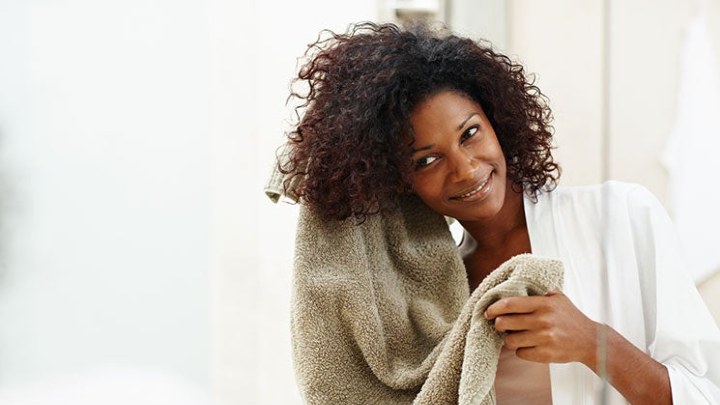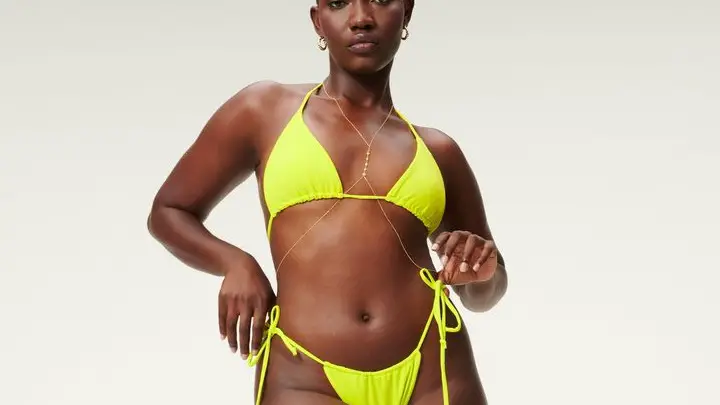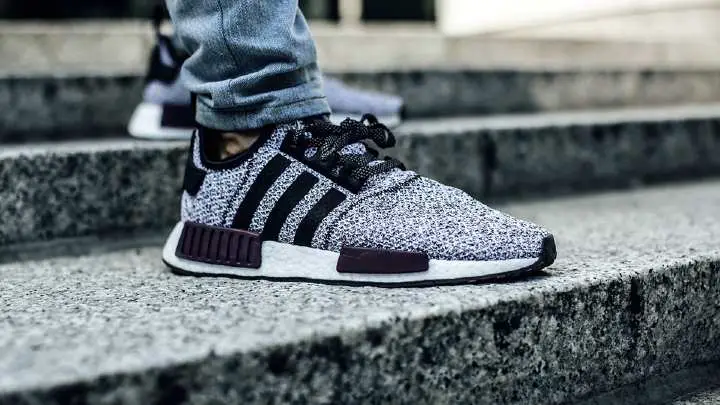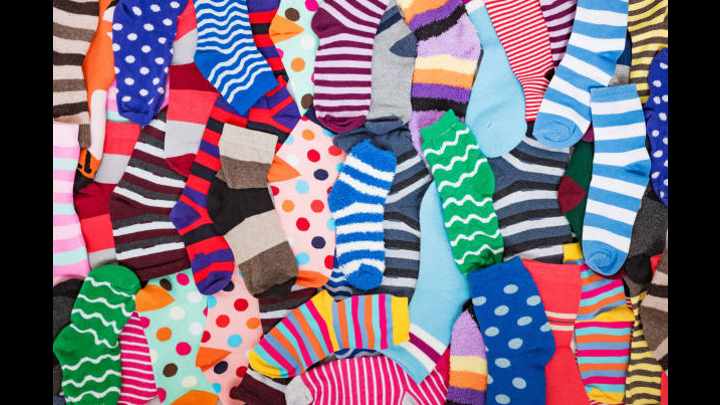If you’re ready to take your natural hair journey to the next level, it’s time to take a closer look at what’s in your hair products.
Many hair products contain certain ingredients that are bad and potentially dangerous to not just your hair but your overall health. These ingredients have been linked to cancer, hormone disruption, asthma, neurotoxicity, and more.
So what should you look out for? I’ve put together a list of the most common bad ingredients in hair products and their effect on your hair. Read on to find out.
What Ingredients Are Bad for Hair?
1. Formaldehyde
Formaldehyde is a colorless, flammable, and toxic ingredient that you can find in many hair care products. Using this ingredient for a long time can cause symptoms like headaches, fatigue, or more severe conditions, including kidney and liver damage.
The FDA urges you to read ingredients lists carefully and avoid any product that contains this ingredient. If you experience irritation while using a hair product with formaldehyde, stop using it immediately and seek medical attention if necessary.
2. Artificial Fragrances
If you have sensitive skin or are prone to allergic reactions, you know that certain ingredients can cause a reaction. Artificial fragrances are one of them.
Many manufacturers use them to mask the smells of other chemicals and they’re practically in every shampoo bottle. According to the Cosmetics Database website, artificial fragrances are made up of harmful chemicals that are neurotoxins, carcinogens (cancer-causing), allergens, and more.
3. Sulfates
Sulfates are the most common shampoo ingredient that you will find on the market. They’re added to shampoos to make them foamy, but they are also responsible for stripping hair of its natural oils.
If your shampoo contains sulfates, your hair will feel dry, brittle, and frizzy after you wash. Sulfates may also cause irritation and rashes if you have a damaged or sensitive scalp.
4. Coal Tar
Doctors and dermatologists recommend avoiding shampoos, conditioners, and other hair products that contain coal tar. Coal tar is a known human carcinogen, which means it causes cancer in people.
It’s banned from being used in cosmetics in Canada and the European Union, but you can still find it in some U.S. products.
Avoiding coal tar in hair products is relatively easy. Any product containing coal tar will have the ingredient listed (usually at the end of the list) on the product label.
5. Parabens
Parabens are preservatives present in some hair products. They keep bacteria from growing in the product, which is great for its shelf life but not so great for your health.
Parabens have been found in breast cancer tumors and have been shown to mimic estrogen, which can disrupt normal hormone function and cause reproductive issues.
SEE: Boost Your Hair Strands With These Ingredients for Healthy Hair Growth
6. Cyclomethicone
Cyclomethicone adds shine, smoothness, and body to hair, but it also creates a barrier that doesn’t allow moisture or nutrients to penetrate the hair shaft. It’s difficult to wash out, so the buildup can cause dryness and breakage in the long run.
7. Alcohol
Alcohol strips away moisture from the hair and scalp. Not only does this cause dryness, but it also creates a dull appearance, tangles, and split ends.
To avoid these problems, check the ingredient list on the product label and make sure alcohol is not listed. If it is listed but towards the end of the list, it’s probably safe in small amounts. If it’s in the top 5 ingredients, then try another product without it.
8. Polyethylene Glycol (PEG)
Manufacturers use PEGs in many hair care products such as shampoos and antifreeze as a thickening agent or solvent.
While these ingredients aren’t that bad, the problem with them is the impurities that come along with them. These impurities include ethylene oxide (a carcinogen), and 1,4-dioxane (a contaminant that may cause organ toxicity).
9. Dimethicone
Dimethicone is an emollient (softening) ingredient that gives hair a silky feel and creates a protective barrier on the surface of the scalp. It also acts as a penetration enhancer, which means it helps other chemicals penetrate deeper into the hair.
The bad news is that it’s one of the most common ingredients that has been found to cause skin irritation and dryness when applied to hair. Prolonged use of this ingredient can also cause the scalp’s natural moisture barrier to become permanently damaged or compromised.
10. Butylene Glycol
Manufacturers use butylene glycol in many hair products because it’s a solvent that helps distribute ingredients throughout a product. It also has some preservative properties, which can help improve the shelf life of a product.
However, it can cause problems for people who have sensitive skin or other skin conditions. If you have sensitive skin or any type of skin condition, avoid using products that contain this ingredient.
SEE: How to Make My Hair Grow Fast: The Secrets to Healthy, Fuller, Longer Hair
11. Triclosan
The FDA has banned triclosan from soaps and body washes, but manufacturers still use it in some acne creams and hair products. According to the FDA, it may cause cancer, interfere with fetal development, and disrupt the endocrine (hormone) system.
If you’re not sure if your hair care product contains triclosan, check the label or product description online. If you’re still unsure, contact the manufacturer to find out if it’s an ingredient in a specific item.
12. Mineral Oil
Mineral oil is a by-product of the distillation process of petroleum (crude oil). Manufacturers use it in many hair care products because it’s extremely cheap and highly effective at making hair appear shiny.
However, mineral oil can keep your hair from getting the nutrients it needs, making it look dry and brittle after prolonged use. In addition, it has no nutritional value for the hair, so it’s just sitting there on your head doing nothing but damaging it.
13. Phthalates
Manufacturers use phthalates in a wide variety of hair products to make fragrances last longer. The bad news, however, is that they are endocrine disruptors, which means they can mess with your hormones.
Researchers at the University of California, San Francisco, found that phthalates are linked to asthma, breast cancer, behavioral issues, obesity, and male fertility issues.
14. Resorcinol
Resorcinol is a common preservative that manufacturers use in many hair care products, especially dyes and bleaches. However, studies show that it can irritate the eyes, skin, and respiratory system, leading to eye problems, respiratory issues, and cancer.
To avoid this, always use caution when using hair products that contain resorcinol. But your best bet is to avoid hair products that contain this ingredient altogether.
15. Toluene
You can find toluene in almost any kind of hair product, from styling gels to hair boosters and texturizers. The biggest risk with this ingredient is that it can irritate your skin and eyes, as well as your nose, throat, and lungs.
But that’s not the only bad thing about this chemical. Toluene is also a neurotoxin, which means it has harmful effects on your brain and nervous system.
SEE: Hair Types: See the Comprehensive List of All Hair Types to Help You Identify Yours
16. Colors
If you’re using hair products with colors (like a tinted shampoo or conditioner), stop. These products may temporarily add color to your hair, but they can also lead to discoloration due to the chemicals in them.
Your best bet for adding temporary color is to use natural products such as Henna powder. These work great and deposit color into the hair shaft without damaging or drying out your hair.
17. Retinyl Palmitate
This is the ester of vitamin A combined with palmitic acid. Manufacturers use it in hair products because it makes hair softer, shinier, and easier to detangle.
However, it also has the potential to cause irritation and photosensitivity. Photosensitivity means that you’ll be more likely to burn when exposed to sunlight.
According to the FDA, retinyl palmitate can also speed the development of skin tumors and lesions when you use it during the day.
18. Quaternium-15
Quaternium-15 is a preservative present in many hair care products, including shampoos and hair straighteners. Repeated exposure to the chemical releases small amounts of formaldehyde, which the National Cancer Institute says “may cause cancer.”
FAQs
Can you put natural oils in your hair?
Yes, you can. Some of the most popular natural oils that you can use for your hair include coconut oil, avocado oil, olive oil, argan oil, jojoba oil, grapeseed oil, and sunflower seed oil.
These types of oils are all plant-based or nut-based and don’t contain any chemicals that could be harmful to your hair.
Is citric acid bad for hair?
No, it’s not. There are many benefits of citric acid for the hair. It is good for treating dandruff and inflammation of the scalp. It also helps with hair growth and can help wash away dead cells from your scalp.
Is cocoa butter good for hair?
Yes, it is. Cocoa butter is high in fatty acids which help retain moisture and seal it into the hair shaft. Cocoa butter also contains antioxidants that help repair damage caused by environmental pollutants and sun rays.
Conclusion
Bad ingredients can do your hair more harm than good, so it’s important to take the time to find a product that has a few of them as possible.
Read ingredient labels carefully before buying and try to buy products only from companies committed to ensuring your health, safety, and well-being.
And once you figure out which products contain little to no bad ingredients, let your friends know about them too. Together, we can work towards making healthier hair products available for everyone.
Thanks for reading.
If you’re looking for more information on how to make your hair healthier, check out Africana Fashion.







